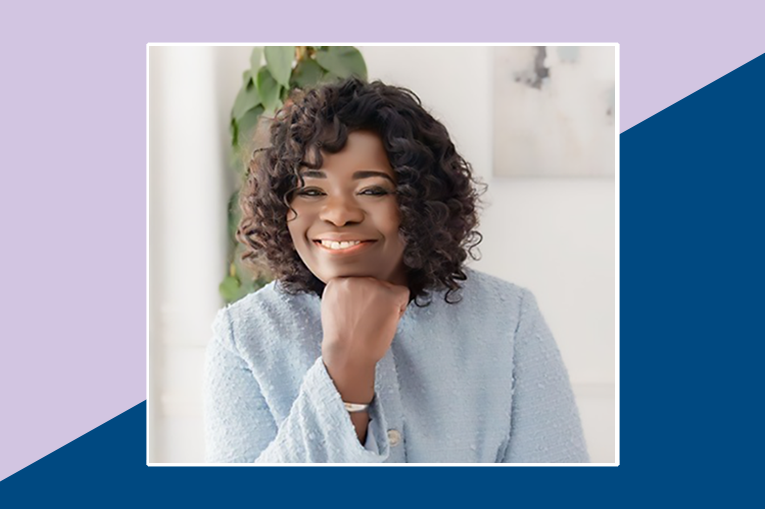Catherine’s #BelieveinPeople story

In this week’s #BelieveInPeople story, we hear from Dr. Catherine Muyeba, who works as a Regional Lead Consultant Psychiatrist in Greater Manchester and Lancashire. She tells us about the doctor who inspired her own career, and how she’s proud to be a part of groundbreaking research.
Earlier this year, the theme of Black History Month was Saluting Our Sisters – a celebration of and tribute to black women. When I first heard that, I began to think about the black women who champion and support others. It’s so important to know that people like that exist. There is value in having mentors and role models that we can look up to and approach, or people who can inspire and guide us from a distance.
An inspiring mentor
The person that comes to mind for me is another doctor who mentored me when I first came to the UK. My plan was to wait until my husband had finished his training and then return to Zambia, but during that time I decided to gain some experience by working as a phlebotomist at a busy A&E department in Manchester.
While I was there, I met another doctor who was originally from Africa, and she became like my big sister. She convinced me that this was an opportunity for me to gain more experience in medicine and pursue it as a career. I could practice medicine in the UK and gain that experience, and then decide what I wanted to do.
At that time, I had given up on the dream of practicing medicine, but she instilled the confidence in me to take that plunge. I decided to study for the exam – and lo and behold, I passed the exam, and the rest is history!
I did several junior doctor roles and then trained to become a psychiatrist, which eventually led me to my current role. Throughout that time, we’ve continued to be friends, and she continues to inspire me – she really is like a big sister to me.
Coming full circle
After I had qualified and become a consultant, I was invited back to that same hospital in Manchester to deliver a talk for the consultants who work there now – so it really brought everything full circle! For me, it was another reflection that not only did that doctor mentor me, she saw beyond what I could see. She invested in me as a fellow black African woman, and I was able to give that back to other people.
I’ve been in my current role with Change Grow Live for just over ten years, and through that time I’ve had the privilege of working in a team that has helped people really put the name of the organisations into practice: they’ve helped people to change, to grow, and to live. And eventually, I’ve see people who initially came in looking for support go on to become my colleagues. That’s one of the most inspiring things for me.
Most people openly share with me how they’ve achieved and maintained their recovery, and that then helps me to help others. When people who use our services say “you don’t understand, you’ve never been in this situation” I can tell them that I know people who have, and maybe they’d be happy to speak to them and share what they’ve learned.
We can never progress on our own; we live our lives with others, so it’s a question of ‘who’ and not just ‘how’. When we identify and champion those people in our lives who’ve helped us progress from one step to another, we show that there is a path that can be followed.
Breaking new ground
Working within Change Grow Live, I have had an ambition for a while to get involved with research opportunities, and now this is finally happening.
In Manchester, we are taking part in a new study led by the Imperial College in London that will explore the use of a well known drug in a new way that could help people to reduce or detox from their opiate substitute medication. The first phase of this research has been completed, and now they are expanding it to other areas around the county.
I’m the principal investigator for Manchester, and I feel incredibly proud to be part of this research which will potentially open doors to new treatment interventions. Everyone in the team is really excited about it, and we’re so proud to be a part of it!”
If you would like to find out more about this research project, please get in touch with Catherine directly: [email protected]
